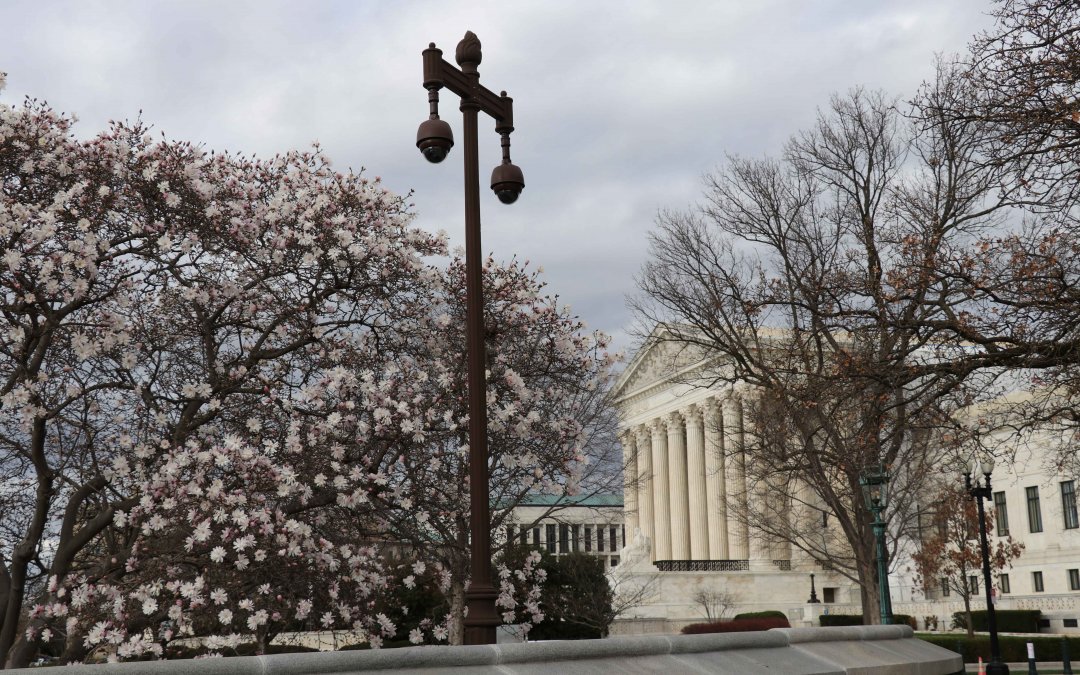WASHINGTON – Supreme Court justices on Tuesday seemed skeptical of arguments that state laws can override national banking rules, but some did wonder whether the state policies did “significantly interfere” with a national law.
New York is one of the 13 states with laws that require mortgage lenders to pay interest on escrow accounts. Borrowers must set aside money in these accounts to pay for property taxes, insurance and other expenses related to home loans.
In 2010, Alex Cantero, Saul Hymes and Ilana Harwayne-Gidansky took out mortgages from Bank of America to buy their homes in New York. The dispute arose when Bank of America refused to pay interest rates on their escrow account, as New York state law required.
The Dodd-Frank Act, enacted in 2010 after the 2008 financial crisis, set rules on when the National Bank Act (NBA) can supersede state laws on consumer money matters. If a state law gets in the way of a national bank’s operations, the NBA usually applies. A federal district court ruled in favor of Cantero, but the U.S. Court of Appeals for the Second Circuit reversed the decision, saying the NBA is more important than state law regarding banking powers.
The Supreme Court agreed to hear the case, which could significantly affect consumer protection laws in banking and influence how state financial regulators safeguard individuals in the financial sector.
“A ruling for Bank of America would deal with a significant blow to consumers, not only with regard to escrow account mortgages but also with regard to potential practices and regulations that states may impose in the interest of protecting consumers,” Steven Schwinn, a law professor at the University of Illinois Chicago, said in an interview. “On the other hand, if the court rules for the plaintiffs here, that could mean that not only do plaintiffs get interest on their escrow accounts, but it could allow states to regulate national banks in other areas to protect consumers.”
The court was skeptical of arguments by Cantero’s lawyer regarding whether state laws can “significantly interfere” with national banking laws.
Justice Neil Gorsuch contended that requiring banks to adhere to a set interest rate on a mortgage escrow account interferes with how the institutions operate.
“Do you need a trial? That’s just common sense, isn’t it?” he said.
Justice Brett Kavanaugh also noted that when a bank has to pay the customer money it wouldn’t otherwise pay, it does seem to be “significant interference.”
“It’s almost putting a tax on the bank to sell the product,” said Kavanaugh.
Some justices referred to the Barnett Bank of Marion County v. Nelson case from 1996. In this case, the Supreme Court acknowledged the states have the “power to regulate national banks” as long as “doing so does not prevent or significantly interfere with the national bank’s exercise of its powers.”
“I don’t see how you can win after that,” said Justice Samuel Alito.
Smita Ghosh, an appellate counsel at the Constitutional Accountability Center, a nonprofit think-tank, said in an interview that by passing the Dodd-Frank Act, Congress decided it would allow states to regulate national banks as long as they weren’t stopped from doing business.
“A ruling favoring Bank of America would make it harder for states to regulate national banks,” Ghosh said. “It would allow national banks to be exempt or above from all state laws, and that’s not what Congress intended.”
But generally, national banks are seen to be more affected by state laws than the federal government in their day-to-day operations, Ghosh acknowledged.
Though justices leaned toward deferring to Bank of America in this case, some recognized that institutions should be aware of the implications of operating in a federal system.
“National banks have to live in reality,” said Gorsuch. “We live in a federal system with 50 states
A decision for the Cantero v. Bank of America case is expected by late June.

